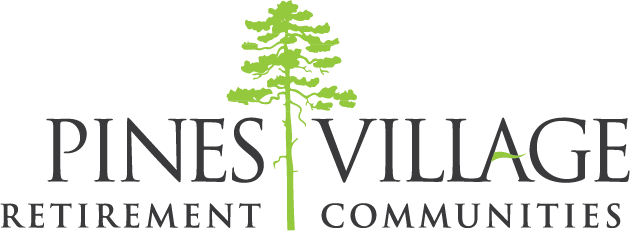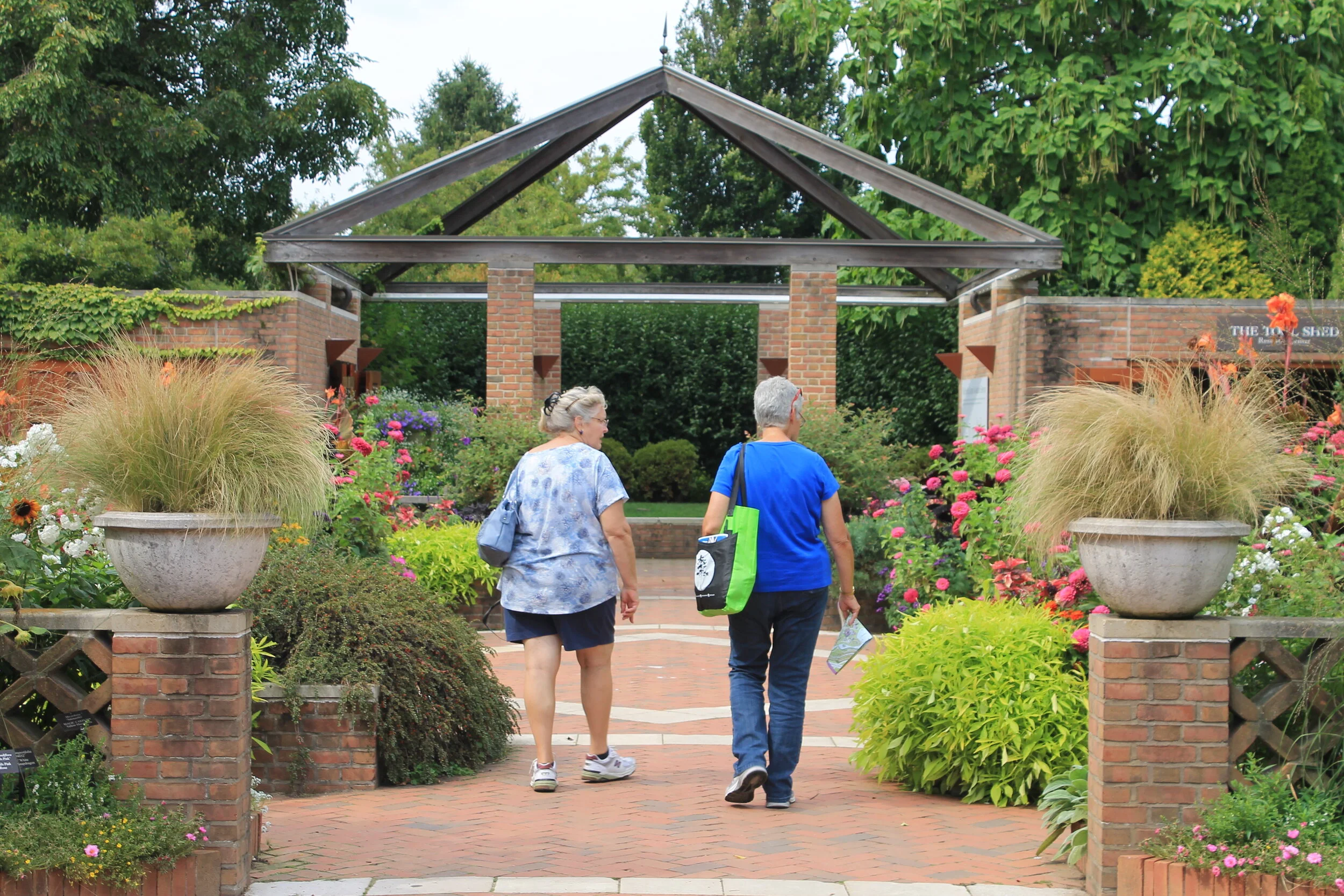Many misconceptions about retirement communities persist, which can lead to hesitation that may prevent older adults from embracing the many benefits of senior living. Retirement communities offer a vibrant community, maintenance-free living, enhanced safety and security, and the freedom to enjoy life on your own terms. In this blog, we'll debunk the most common misconceptions about retirement communities and try to illustrate life at Pines Village Retirement Communities.
Misconception: Retirement Communities Are Just Like Nursing Homes
Many people believe that retirement communities are similar to nursing homes, where seniors receive round-the-clock medical care in a clinical setting. This misconception often leads to concerns about losing independence and vitality.
Truth:
Retirement communities and nursing homes serve distinct purposes, catering to different needs and lifestyles. While nursing homes provide medical support for those requiring skilled nursing care, retirement communities are designed to enhance independence. They free residents from homeownership burdens and daily chores, allowing them to focus on what they love while retaining control over their lives and health choices.
Many retirement communities offer a range of living options to support various levels of independence. Options typically include independent living for those who manage their routines independently, assisted living for residents who need occasional support, and memory care for individuals with diagnosed dementia or Alzheimer's. Unlike nursing homes, retirement communities provide private apartments rather than single rooms, offering residents a more personal, home-like environment.
At Pines Village, residents enjoy maintenance-free living in private apartments, with access to social activities, programs, and amenities that encourage an active, independent lifestyle. Help is available when needed, while services like bi-weekly housekeeping, including vacuuming, weekly linen changes, and general maintenance, simplify daily life without compromising independence.
Misconception: Retirement Communities Are Boring
There is a widespread belief that retirement communities are dull, with limited activities and few opportunities for social interaction. Some seniors fear that their lives will become monotonous after they move there.
Truth:
Far from boring, retirement communities can be hubs of activity! They are designed to foster engagement, learning, and enjoyment. Many offer an extensive calendar of events, including fitness classes, arts and crafts, social gatherings, cultural outings, and special interest clubs.
At Pines Village, our residents enjoy a variety of programs that nurture their minds, bodies, and souls. They can visit The Village Art Gallery and see new works by regional artists. They can attend monthly outings, including Symphony Under the Stars, the Farmers Market, and dining at local restaurants. Residents have also started their own programs, including a weekly social hour, a seminar on monarch butterflies, grief support groups, and card-playing groups.
Misconception: Retirement Communities Are Too Expensive
Another common misconception is that retirement communities are unaffordable. Many people assume they are only for the wealthy.
Truth:
While costs vary widely, many retirement communities are more affordable than you might think—especially compared to the numerous and often hidden expenses of maintaining a home. Consider the ongoing costs of homeownership: property taxes, home insurance, maintenance, landscaping, utilities, and grocery shopping, as well as the increasing healthcare costs as we age. In a retirement community, many of these expenses are bundled into a single, predictable monthly fee, which can cover not only housing but also amenities like meal plans, fitness facilities, housekeeping, and even some levels of healthcare, if chosen. This setup often reduces financial stress and the physical burden of managing a household, making retirement communities an attractive and practical option for many seniors.
At Pines Village, we value transparency, which is why we display our pricing on our website. We're not here to persuade you to live here if it doesn't feel right. We aim to understand your unique needs and preferences and help you find the living arrangement that best suits your needs. Whether that means joining our community or exploring other options, we're committed to supporting you in finding the perfect fit for your situation.
Our pricing is straightforward, and many residents find that consolidating their living expenses saves them money. Your monthly rent includes utilities, including cable and public Wi-Fi, housekeeping, handyperson services, transportation, and more, offering convenience and cost-effectiveness.
Misconception: Retirement Communities Are Only for "Old" People
Some active seniors worry they're "too young" to move into a retirement community, associating them with a sedentary lifestyle or constant care.
Truth:
Retirement communities cater to a wide range of ages and lifestyles. Many residents are active, engaged in fitness programs, traveling, or volunteering while enjoying the freedom from home maintenance and daily chores. These communities provide a supportive environment for those seeking to maximize their quality of life, not just those needing care.
At Pines Village, our community comprises residents of diverse ages, interests, and activity levels. Some are deeply involved in committees, social events, and community gatherings, while others cherish a quieter, more relaxed lifestyle. We're dedicated to fostering independence and understand that each resident's ideal experience is unique. There is no one-size-fits-all approach here; instead, we prioritize honoring and supporting each individual's preferences and pace. At Pines Village, your individuality is celebrated, and we're here to ensure that your lifestyle aligns with your vision for this stage of life.
Misconception: Families Will Be Cut Off from Their Loved Ones and Pets
Families may fear that moving their loved ones to a retirement community will create distance and limit interactions. Potential residents may also worry about having to leave behind their pets.
Truth:
Retirement communities often strengthen family bonds by relieving caregiving stress and allowing for more quality time together. Many communities, like Pines Village, offer guest accommodations and host family-friendly events, making visiting loved ones easy.
At Pines Village, we welcome family visits and encourage loved ones to participate in activities. Residents can even host family members for special events, like our holiday buffets, and guest rooms are available for overnight stays. If the grandkids feel like staying over for a slumber party with grandma and grandpa, they are always welcome. We also know how important pets are, which is why residents are welcome to bring their small pets with them.
Misconception: Once You Move In, You're Stuck
Some seniors worry that moving to a retirement community is a permanent decision and that they'll be stuck if they don't like it.
Truth:
Most retirement communities offer flexible living arrangements, allowing residents to "test the waters" with short-term stays or month-to-month rental options. This flexibility supports residents in starting with independent living and transitioning to different levels of care as their needs evolve.
At Pines Village, we're committed to providing this same flexibility. With our month-to-month rental options, residents aren't bound by long-term contracts; instead, they have the freedom to adjust as they see fit. They can release their apartment with just a 30-day notice if their needs or preferences change. This approach ensures that residents feel empowered and confident in their decisions, knowing they can adapt as their lifestyle or care needs shift.
Conclusion: Retirement Communities Offer Freedom, Vibrancy, and Peace of Mind
The reality of retirement communities is far more encouraging than common misconceptions might imply. Senior living today offers a vibrant combination of freedom, maintenance-free living, and opportunities for social engagement.
With flexible options to support changing needs, residents can enjoy a fulfilling, independent lifestyle with peace of mind, knowing that assistance is available if and when needed. Retirement communities are designed to enhance the quality of life, making this chapter one of renewed independence, connection, and enjoyment.
At Pines Village, we aim to help seniors live their best lives in a supportive, active, and engaging environment. If you or a loved one are considering a move, we encourage you to contact our residency coordinators and schedule a tour. This will allow you to speak with current residents and experience the benefits of senior living firsthand. You might just be opening the door to an exciting new chapter of life!







